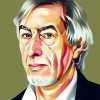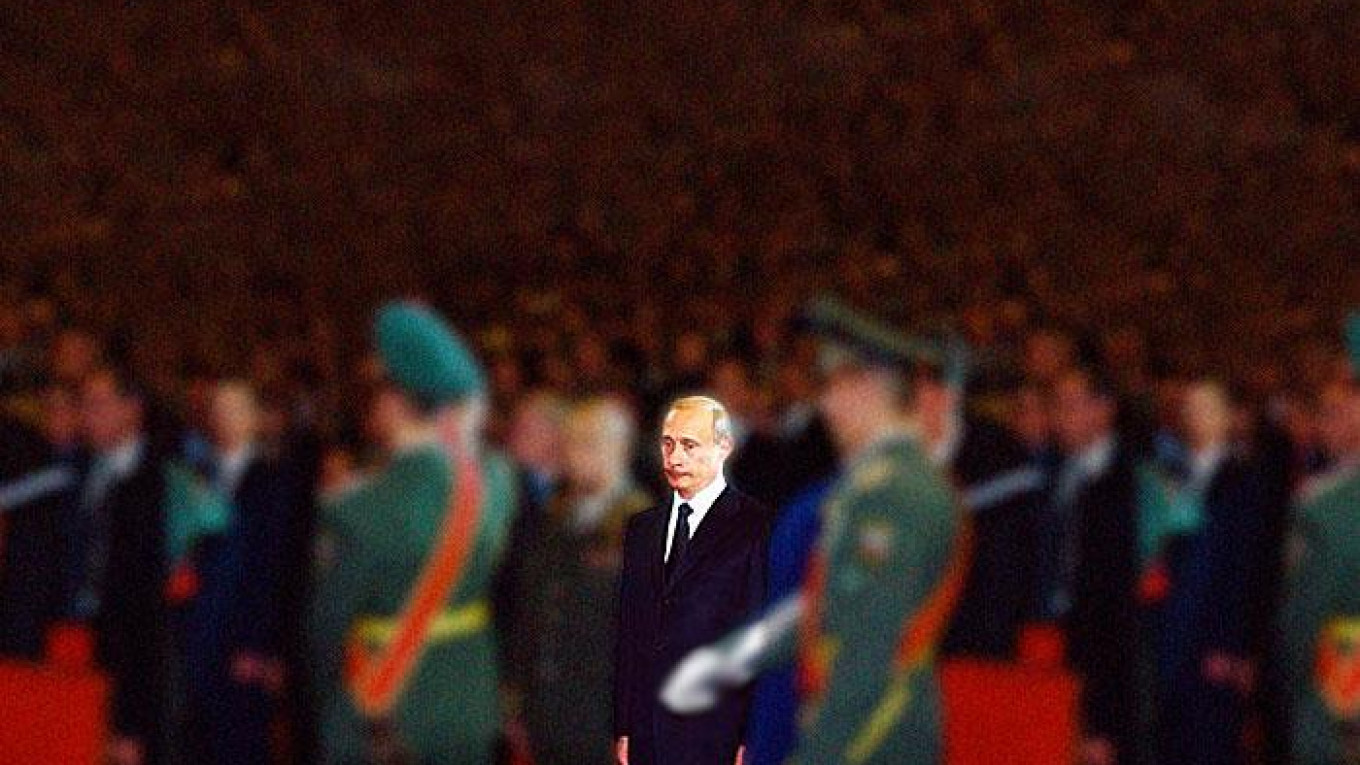Ultraconservatism is the new Russian zeitgeist. The country’s leadership has embraced it. Its influence on Russian media is obvious, and the public mood reflects it as well. Religious and military components of the school curriculum, revision in history courses, the construction of new temples and monuments—all of this serves to consolidate, fortify and perpetuate the attitudes, ways of life and forms of power that have taken hold in Russia.
In the 1990s, Russian society moved from the ruins of state socialism toward a democratic political system and market economy. By the mid-1990s, domestic economic relations had, for the most part, reached a point that suited both owners and managers, as well as those who were somewhere in the middle. A balance had been achieved.
Almost no one is willing to admit that Russia is backward. So instead we are asked to imagine ourselves on a special path, with no one for company
Of course, this balance did not suit the majority of the population, but it was fine with the minority that held the main assets of Russian society. These were mostly mixed resources of power and property. They were often of questionable origin, and the rights to this power and property could only exist as long as the current order was maintained. Often, specific people even had to be kept in certain positions.
This intermediate state most suited the huge post-Soviet class of bureaucrats, who had mastered laws, rules and regulations, as well as the methods for their selective application or disregard. They did not want to return to socialism. Everybody knows that their power is much greater than that of Soviet civil servants. They feel no need to proceed to bourgeois democracy, with its independent courts and interactive branches of power. People wouldn’t "understand" them there.
The bourgeoisie that formed along with the bureaucracy—the new owners—wouldn’t want a return to Soviet socialism either. Not that they have any use for Western-style developed capitalism, with its transparency, standards and audit reporting. "Perfect! Hold it right here for a moment," the post-Soviet elite is thinking. That’s how the party of the status quo came about. Conservatism was an instinct and mood before it took shape as an ideology.
They had to put a damper on the democratic reforms started in the previous period. The steady, gradual dismantling of new social institutions began. Any excuse would do. The public watched in silence, and it seemed as though the promises of democracy were being denied to them, just as the promises of communism had been.
This frustration led to a multitude of complications and pathologies in the mass consciousness. The first evidence of this was the idea of a "special democracy" that Russia needed — one that is obviously not the same as in the West. This has since evolved into a broader, and politically convenient idea of Russia’s "special path."
We have clearly fallen behind on the path the Western countries are taking, and we are never going to catch up. We thought about China’s path, without so much as a whisper about competing with it. At the same time, almost no one is willing to admit that Russia is backward. So instead we are asked to imagine ourselves on a special path, with no one for company.
The idea is comforting. But you can’t stop there. The logic of our exclusivity has led over time to the idea of our special rights. We can do things no one else can. After the annexation of Crimea, politicians found a hundred reasons why it was legitimate, legal and correct. Mass consciousness didn’t belabor the details of the case but tried to stand firm in the conviction that it was our right, that’s all. And if everyone in the world thinks we are wrong, it only proves our rightness.
The truly special path from Soviet socialism to partial state capitalism has left a lot of Russians in confusion. A surprisingly cheap and effective ultraconservative drug has been found for them: a daily showing of old Soviet films on major TV channels. They have started to inject symbols of the Soviet and imperial periods into popular culture.
The authorities have realized that ultraconservatism — via the systematic dosage of a virtual past — allows it to maintain the status quo necessary for the elites. A unique consensus of the public and the authorities has thus been created. It has proven its value: two-thirds of the population now approves of the activities of its chief representative, Putin, and has done since the beginning of the 2000s.
The recent conversion of millions of other Russians have raised the presidential rating past 80 percent. These changes, and the transformation of ultraconservatism into a new activism, designed to frighten and provoke a hostile outside world, are subjects for a separate, and important discussion.
Alexei Levinson, the author, is a sociologist at the independent Levada Center polling organization.
A Message from The Moscow Times:
Dear readers,
We are facing unprecedented challenges. Russia's Prosecutor General's Office has designated The Moscow Times as an "undesirable" organization, criminalizing our work and putting our staff at risk of prosecution. This follows our earlier unjust labeling as a "foreign agent."
These actions are direct attempts to silence independent journalism in Russia. The authorities claim our work "discredits the decisions of the Russian leadership." We see things differently: we strive to provide accurate, unbiased reporting on Russia.
We, the journalists of The Moscow Times, refuse to be silenced. But to continue our work, we need your help.
Your support, no matter how small, makes a world of difference. If you can, please support us monthly starting from just $2. It's quick to set up, and every contribution makes a significant impact.
By supporting The Moscow Times, you're defending open, independent journalism in the face of repression. Thank you for standing with us.
Remind me later.








